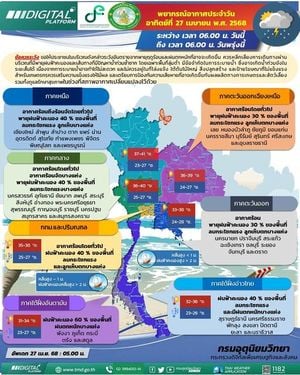The Brazilian government on March 18, 2025, issued a statement condemning remarks made by Alejandro Domínguez, president of the South American Football Confederation (Conmebol), who cheekily compared a Copa Libertadores without Brazilian teams to "Tarzan without Cheeta." This comparison, made during a press conference following the draw for the tournament's group stage, sparked significant backlash and highlighted ongoing issues of racism within the sport.
In its official statement, signed by the Ministry of Sport, the Ministry of Racial Equality, and the Ministry of Foreign Affairs, the Brazilian government criticized Domínguez's comments as disrespectful and exemplative of Conmebol's ongoing failure to implement effective measures to combat racism in its competitions. The statement urged Conmebol and South America's National Football Federations to act decisively against racism, discrimination, and intolerance, promoting racial equality and improving access to sports for marginalized communities.
Domínguez's remarks were made after a journalist asked whether he could imagine a Libertadores tournament without Brazilian teams. He responded with a laugh, saying, "It would be like Tarzan without Cheeta—impossible." This light-hearted analogy, however, quickly evolved into a serious and contentious issue once broadcasted beyond the conference room, drawing significant ire from Brazilian officials and football fans alike.
The Brazilian government’s response emphasized their commitment to initiatives aimed at combating racism and fostering equality in sports. In their statement, they asserted, "the Brazilian government reiterates its commitment to initiatives to combat racism and promote racial equality, including measures against any kind of discrimination in the different sports disciplines." The ministers called for all involved to enact change, emphasizing the need for accountability and action in response to racist acts within the sport.
On March 18, shortly after the backlash, Domínguez took to social media platform X to offer an apology. He stated, "I want to express my apologies. The phrase I used is a popular expression, and I never intended to belittle or disrespect anyone." He underscored the importance of Brazilian teams within the Libertadores, declaring, "The Conmebol Libertadores is unthinkable without the participation of clubs from all 10 member countries."
Racism in football has been an increasingly pressing issue, not just in South America but worldwide. Domínguez had previously acknowledged, during the draw event, that racism was a significant hurdle for football and committed that the organization would continue imposing sanctions to ensure that "every racist expression has a real consequence." His initial remarks and subsequent apology could be seen as part of a wider conversation about accountability, representation, and respect in sports.
The Brazilian government, through its ministries, has taken a firm stance against discrimination, urging rigorous action toward combatting these age-old issues that persist in society and sports alike. This situation serves as a reminder of the importance of dialogue and education concerning cultural sensitivity within sports organizations.
As football remains a beloved sport across Brazil and the continent, incidents like these challenge the broader football community to not only adhere to principles of fairness and equality but also actively engage in initiatives that foster an inclusive environment for all players and fans. The call for decisive action is a reflection of the ongoing fight against racism and a plea for a more equitable future within the beautiful game.
In light of this incident, it is crucial for governing bodies to reflect on their practices and ensure that such comparisons not only remain respectful but also emphasize solidarity rather than division among competing nations and teams. The blending of humor and cultural references can sometimes miss the mark, leading to unintended consequences that must be addressed earnestly and with commitment.
The Brazilian government's robust response highlights the necessity of accountability at all levels of sports administration. Their willingness to confront racist comments and practices represents a commendable step towards a more inclusive athletic climate, reinforcing that unity and respect should always prevail in competitions designed to inspire and entertain.




